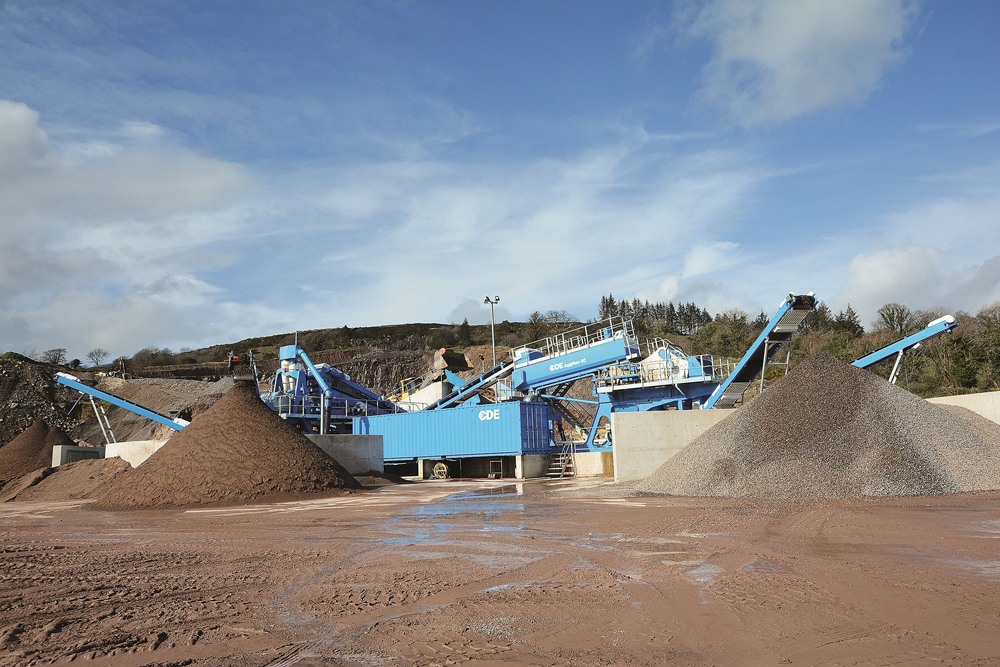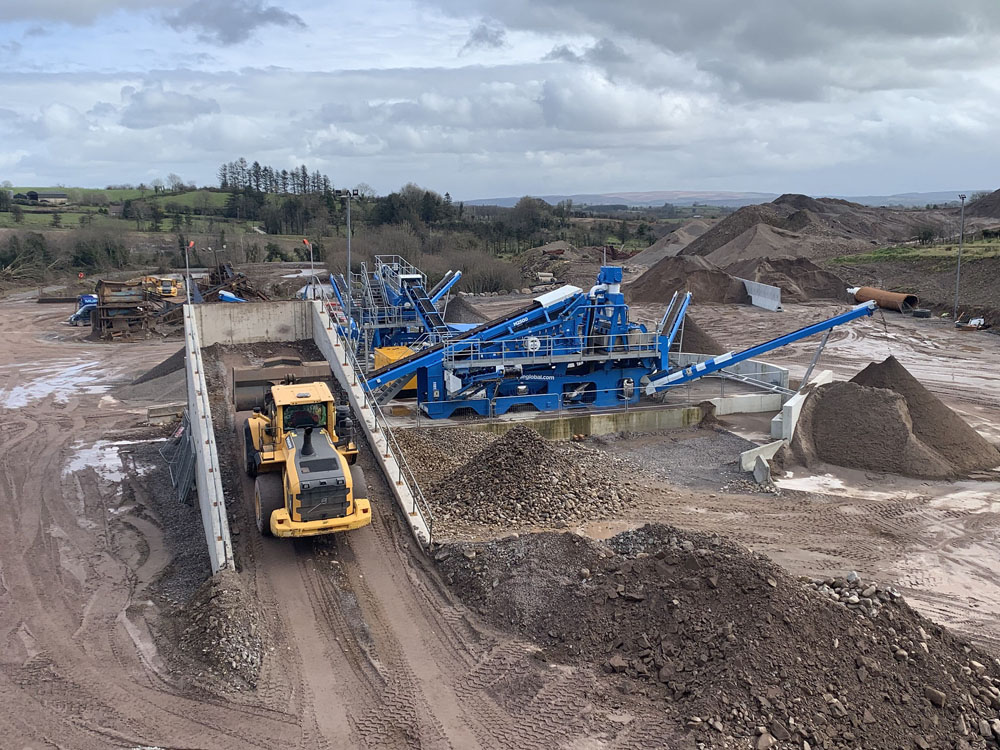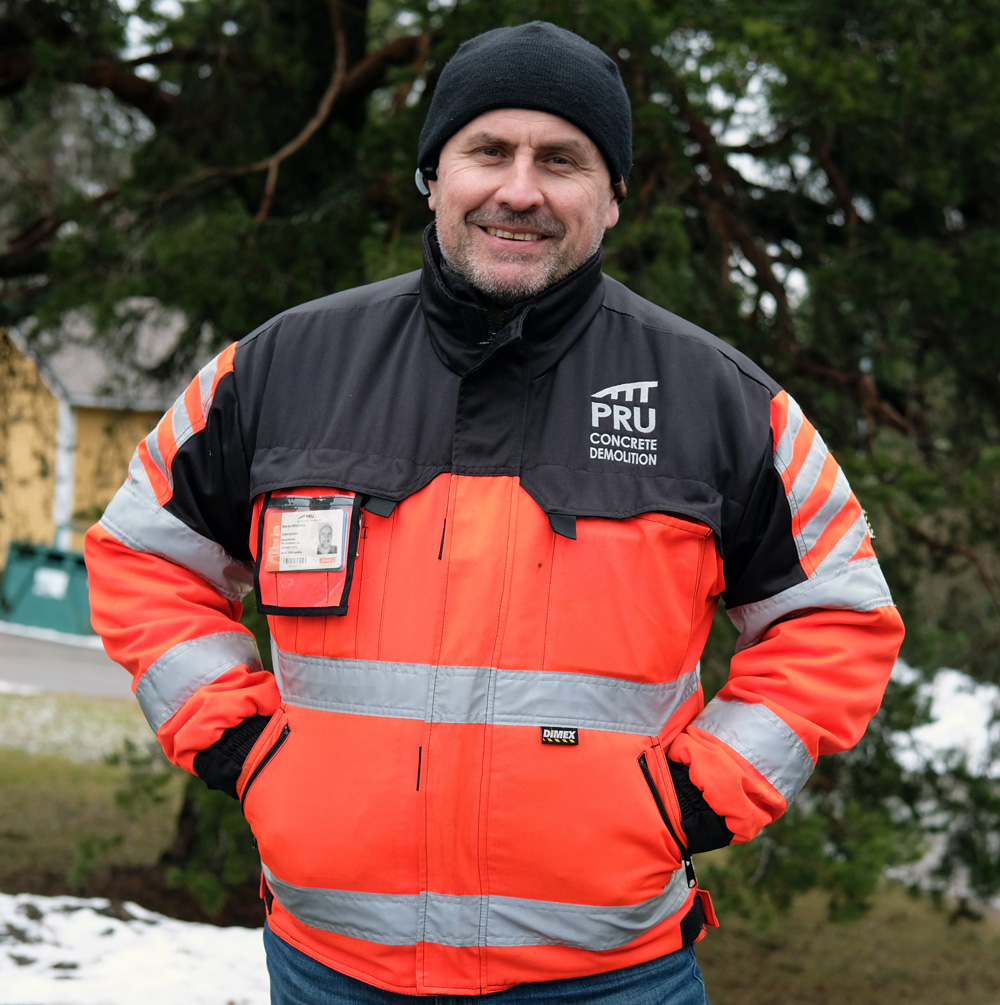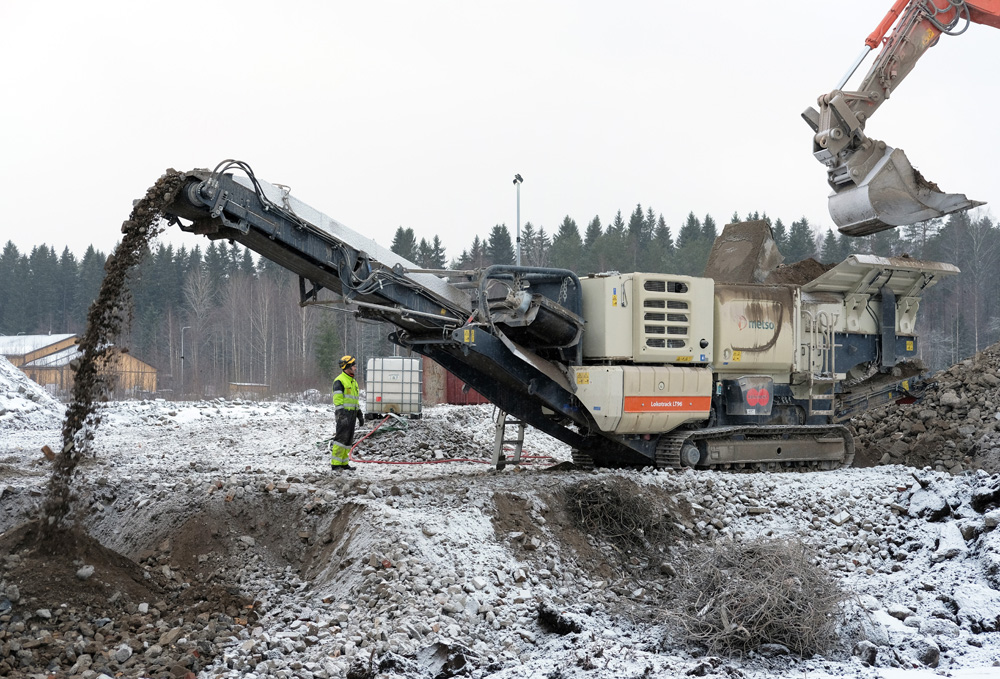
Campbell Contracts, a family-owned and managed business headquartered in Tempo, a small village on the outskirts of Enniskillen in County Fermanagh, Northern Ireland, claims to have doubled its materials processing ability since commissioning a new CDE wet processing plant. Operating from its Letterbailey Quarry, Campbell Contracts has been extracting sand and gravel for over three decades. In recent years it commenced controlled blasting activities and now counts sand, gravel, crushed rock, rock fill and screened topsoil among its growing product range.
In 2019, the Campbell family partnered with CDE, a leading global market manufacturer of wet processing technologies, to help it grow the business and diversify its portfolio of high-quality quarried aggregates.
For decades Campbell Contracts had utilised a traditional barrel washer, as company director Brendan Campbell explains.
“It was suitable for our business needs at the time it was installed, and it has served us well over its 30 years of service.
“Increasingly, we need to ensure we can recycle and reclaim as much primary aggregate as possible during the quarrying process and the barrel washer had its limitations.”

One of the earliest processes for washing aggregates, the Campbell Contracts barrel washer was efficient when processing cleaner virgin material. Its limitations became evident in its inability to wash heavier, clay-bound materials, rendering them as waste.
“This material was then backfilled into the pits and buried,” Campbell says. “Similarly, the unwashed primary scalpings we generated were inevitably stockpiled as we didn’t have the technology to efficiently process the material.”
Each stage of the quarrying process produces by-products in the form of overburden, scalpings and crushed rock fines. Often, quarry operators classify these as waste materials without commercial market value.
David Kinloch, regional manager for CDE in the UK & Ireland, says: “CDE engineers state-of-the-art wet processing technologies that offer quarry operators the solutions to enhance the quality of products they currently produce, while simultaneously supporting them to add huge commercial value to their enterprises by ensuring value is extracted from all available material, including those which are too often perceived as quarry waste by-products.”
CDE completed tests at Creagh Concrete on material extracted from the Letterbailey Quarry. Material was analysed, and results used to develop a bespoke wet processing system that responds to the needs of Campbell Contracts and would support the family business to stimulate growth.
“This was an important consideration for us,” emphasises Campbell. “CDE understood our operation and what we wanted to achieve with a new wet processing plant. It’s very much a journey and a partnership with CDE that extends beyond the commissioning phase, with first-class proactive and preventative measures to ensure the plant is operating at maximum efficiency.”
Campbell Contracts’ new 120 tonnes per hour (tph) wet processing plant includes the L35 Feed Hopper, M2500 incorporating the twin-deck P2-75 Infinity Screen and EvoWash, and CDE’s AggMax83, integrating the RotoMax RX80 logwasher and H2-60 Infinity Screen.
The fully integrated, modular plant combines feeding, screening, washing and stockpiling onto one compact and mobile chassis.
With the support of its new CDE plant, Campbell Contracts is successfully processing three materials it previously categorised as waste from its quarrying operations: clay-bound sand and gravel, primary scalpings and crushed rock fines.
Campbell says it has had a transformative impact on the business.
“We’re recovering high-quality materials and value that we had effectively written off as waste. In retrospect, we should have partnered with CDE to commission the plant sooner.”

Virgin sand and gravel feed material is being processed at a rate of 120 tph producing 0-3mm and 0-6mm sand; 6-12mm, 12-25mm and 25-50mm aggregate; and +50mm oversize aggregate for a wide range of applications in the construction industry.
Kinloch adds: “Campbell Contracts is now processing three grades of material that it historically stockpiled or backfilled. CDE wet processing technology has demonstrated that all quarry by-products have the potential to be processed into marketable products that add significant value to a business.”
Savonlinna is the home of one of Finland’s leading bridge demolition companies, Savonlinnan PR-Urakointi (PR-Urakointi). The firm’s processing of demolition concrete is said to be much more efficient thanks to a recently purchased noise- and dust-proof Metso Lokotrack Urban LT96 jaw crusher.
“The Lokotrack is at least five times more cost-effective than the crushing bucket we previously used. Depending on the feed, the LT96 can crush up to 150–250 tonnes per hour,” says Marko Blinnikka, managing director of PR-Urakointi.
“I must say that the Urban is truly quiet. The sound of crushing does not exceed the sound of the engine, and you can talk right next to the machine without raising your voice. Spraying water at high pressure into the crusher’s cavity and main conveyor prevents dust generation.
“As an additional benefit, the Lokotrack’s magnetic separator removes reinforcing bars from the crushed concrete, so that we can use the clean, crushed concrete for landfilling, often at the same site,” Blinnikka continues.
PR-Urakointi used its new Lokotrack Urban LT96 for the first time at Aholahti in Savonlinna. Approximately 20,000 tonnes of concrete from demolished buildings were piled up in an industrial area. The stockpile contained reinforcing steel bars, some of them only as thick as your little finger.
After a couple of days’ practice, crushing with the new tool was said to be effortless. Tomi Inkinen fed the concrete into the jaw crusher, Aulo Nemevalts immediately levelled out the crushed concrete artificial fill, and Jori Kettunen monitored the machine in operation.
Metso’s IC process control is said to have proven to be an excellent tool when getting to grips with the crushing process. The team was already well familiar with the different on-screen buttons after just a couple of days.
Consisting of pieces of concrete, bricks and fines, the feed was crushed in the jaws of the C96 jaw crusher at a setting of 90mm. The mountains of iron waiting to be recycled were an indication of the vast number of reinforcing bars contained in the concrete.
The processing of concrete does not require high crusher or diesel engine capacity. Consumption during crushing was around 13 litres of fuel per hour.

Every year, PR-Urakointi performs a large share of all the demolition contracts available in Finland. These also include demolishing buildings.
“It will be interesting to see how the Lokotrack can handle the concrete used in bridges, which is much harder than the concrete used in buildings. In addition to more reinforcing bars, bridge concrete can contain up to 50% natural stone,” says Inkinen from PR-Urakointi.
One bridge may easily contain up to 5,000 tonnes of concrete to be demolished. The Lokotrack enables crushing on-site, which results in savings in transport costs.
“When you’re demolishing a bridge, you must always know what you’re doing. Each bridge is a different story. Sometimes you have to perform the demolition work while cars are using one of the lanes, which is a whole new challenge,” Inkinen says.
PR-Urakointi has also been an industry pioneer in the development of demolition equipment. The company has developed an excavator attachment called the Power Dropper, which can easily crush even the most substantial concrete slabs in bridges without disturbing the environment.
Furthermore, the year before last PR-Urakointi expanded its operations to include the more demanding asbestos stripping.
Based in the northern Italian region of Trentino-Alto Adige, Martintoni has been a Rammit Spa (Rammit) customer for around 20 years. During this time the firm has bought breakers and other equipment from the Italian Rammer hydraulic hammer dealer. In recent years, however, Martintoni is said to have also transformed its material processing and handling operations with an Allu attachment for the screening and processing of soils and recycled materials.
A meeting at the Ecomondo exhibition in Rimini, Italy, in 2018 led directly to Rammit supplying a new Allu Transformer with the revolutionary TS blade structure, with the Allu attachment being fitted to Martintoni’s new Liebherr 556 Xpower wheeled loader. The proposed DS 4-23 TS16-32 model with screening blades was demonstrated working on topsoil and other materials that would usually be sent directly to landfill. However, to provide a more difficult proposition, a demonstration was arranged at Allu’s headquarters in Finland on particularly sticky and ‘difficult’ soil.
The demonstration in Finland went very well, with the representatives from Martintoni also taking the opportunity to visit the Allu factory, and inspect the production process, spare parts facility and inspect the quality of the components used in manufacture. Following a reappraisal of Martintoni’s requirements, it was decided to use an OilQuick hydraulic quick coupler (OQL 310) to hook/unhook the Allu attachment rapidly when the need arose.

Since its delivery and fitting to the loader, the Allu Transformer DS 4-23 TS16-32 is said to have performed well above expectations. It was commissioned for the customer by Allu-trained Rammit technicians and has been used regularly for screening soil from excavations carried out by Martintoni or by third parties.
Most of the excavated material contains a high percentage of roots and branches and other contaminants which the bucket, set with a spacing of 16mm, can screen very effectively. The Allu Transformer tends to work at its maximum capacity of 3.5m³. It is said to be able to achieve the desired daily production of over 1,000m³, processing the sticky material in 20-30 seconds.
Martintoni acquired 15,000m² of land, subsequently used to build a new fixed sand and gravel processing plant to enable the company to supply a broader range of aggregates for general structural construction. In addition to the processing of aggregates, the company now receives and processes materials emanating from excavations, earthmoving, remediation, pipeline, roads, building construction and landscaping. To work with these materials, the company uses a fleet of trucks, excavators, rollers, wheeled loaders, as well as a new Allu TM Transformer DS 4-23 TS25 to help transform its operation.
Kiverco has bolstered its team with several key appointments to support business growth in the UK and increasing demand for its recycling solutions in Europe and around the world.
Combining more than a quarter of a century of engineering know-how with its popular technology brands, Kiverco designs, manufactures and delivers lasting recycling solutions for any waste stream anywhere - with more than 300 installations in the UK alone.
In recent years, the Northern Ireland-headquartered company has grown significantly as a result of increased demand for its recycling solutions in the UK, combined with considerable international expansion in Europe, the Middle East, North America and Australasia.
New staffers include Con Gallagher, who has become the company’s global head of sales, André Matula, the new key account manager/business development, and Angela Madden, who has taken up the newly created role of head of marketing & PR.
The company, renowned for its robust static recycling solutions, has also brought to market its modular plant range which is sold through its growing dealer network to meet demand. This range of products can run as single units or when combined, provide an alternative to traditional ways of processing waste. Product benefits include simple set-up within hours, reduced footprints and rapid relocation without the need for cranes, with all the benefits of a high-performance static plant.
Kiverco’s modular range can process municipal solid waste (MSW) as well as construction and demolition (C&D), commercial and industrial (C&I) or dry mixed recyclables (DMR) waste and includes material feed, screening, air, magnetic and manual sorting equipment.








